Accelerating clean energy cooperation
Within the framework of the 4th Vietnam-Japan Asia Zero Emission Community (AZEC) High-Level Meeting and the 2nd High-Level Meeting of the Project Promotion Platform (PAP) jointly organized by the Ministry of Industry and Trade and the Embassy of Japan in Vietnam on November 17, Deputy Minister of Industry and Trade Nguyen Hoang Long said that AZEC is one of the very meaningful initiatives. In the recent past, with the coordination of the Embassy of Japan in Vietnam, the Ministry of Industry and Trade and the Groups and General Corporations in the energy sector and localities have organized many discussions on projects, helping the parties better understand the wishes and proposals.
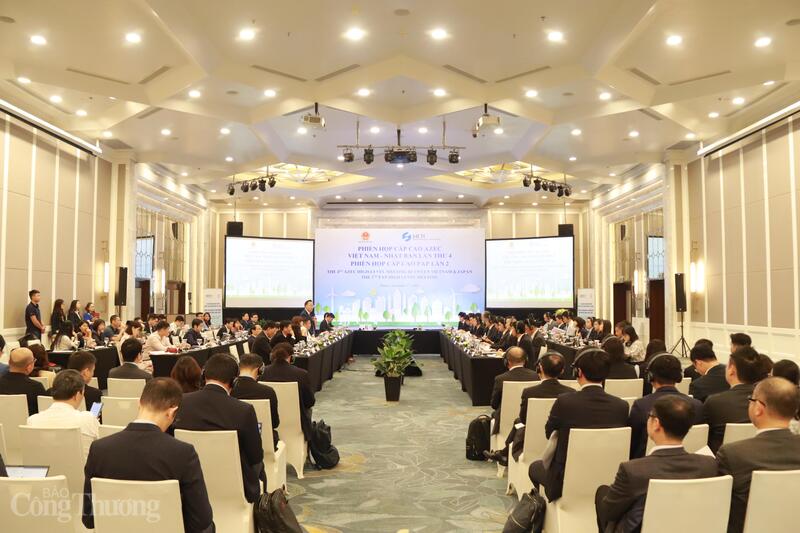
The 4th Vietnam - Japan AZEC Summit and the 2nd PAP Summit. Photo: Thanh Tuan
“ Based on the discussion at the 3rd AZEC Meeting, in the process of building policy mechanisms, the Ministry of Industry and Trade has researched and coordinated with agencies to make proposals to the authorities on energy-related issues such as the direct power purchase mechanism (DPPA), LNG power plants, rooftop solar power and other forms of renewable energy... ”, said the Deputy Minister of Industry and Trade.
On August 20, 2025, the Politburo issued Resolution No. 70-NQ/TW on ensuring national energy security until 2030, with a vision to 2045. In order to implement the tasks and solutions stated in the Resolution, agencies have drafted many mechanisms and policies for implementation. In the coming time, the National Assembly is expected to issue a Law amending and supplementing a number of articles of the Electricity Law 2024. The process of building policy mechanisms is being urgently implemented.
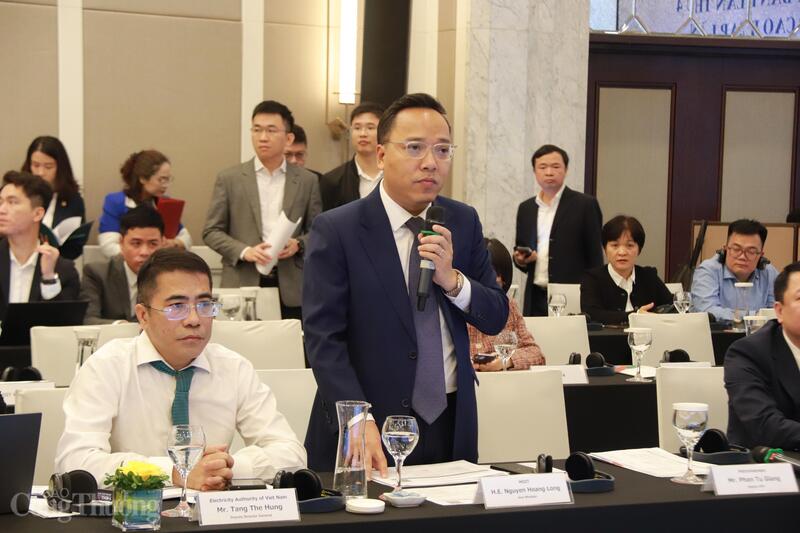
Deputy Minister of Industry and Trade Nguyen Hoang Long speaks at the event. Photo: Thanh Tuan
On that basis, Deputy Minister Nguyen Hoang Long affirmed that the proposals at the meeting are very important for Vietnamese agencies, especially localities, to better understand Japanese investors, thereby making adjustments in the spirit of Resolution 70, contributing to speeding up the implementation of projects under the AZEC Initiative, helping projects to enjoy policy mechanisms issued in the coming time.
Besides, the Deputy Minister emphasized that Vietnam and Japan have a lot of potential and strengths in many fields to cooperate in the process of implementing the Asian Community Cooperation Initiative for Net Zero Emissions, not only in energy.
Expanding dialogue to improve the investment environment
Also at the meeting, Japanese Ambassador to Vietnam Ito Naoki said that the two sides had a dialogue session recently, in which many issues related to AZEC, as well as the efforts and challenges from Japan and Vietnam, were raised. "We understand that these issues will continue to be compiled and reported to the Prime Minister of Vietnam and relevant agencies," said the Japanese Ambassador to Vietnam.
According to Mr. Ito Naoki, Japanese and Vietnamese enterprises have recently made great efforts to clarify the problems and propose many solutions with the hope of amending and perfecting the mechanism framework. In this process, listening to opinions and two-way dialogue are of special importance to perfecting Vietnam's policies.
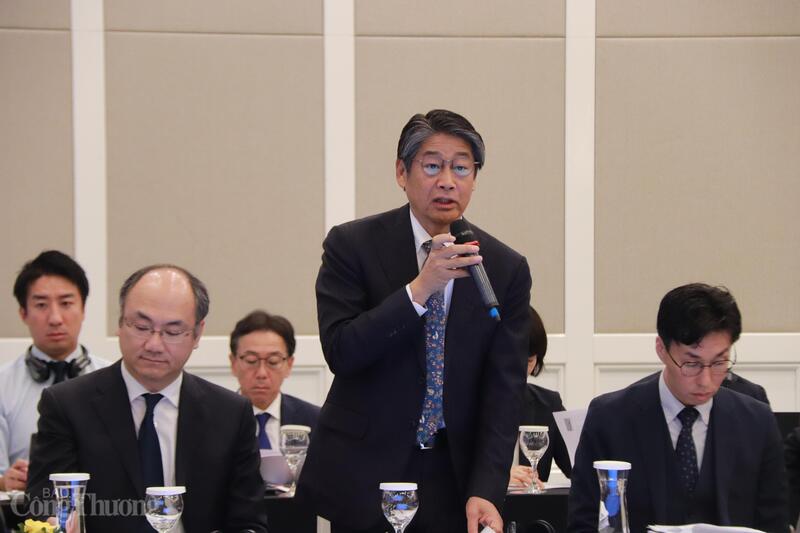
Japanese Ambassador to Vietnam Ito Naoki. Photo: Thanh Tuan
The Ambassador said that the issue is how to further expand the dialogue space, attract the participation of all relevant parties, thereby discussing in depth and proposing specific solutions to improve the investment environment.
“ With the spirit of focused, frank and substantive exchanges, we look forward to continuing to receive cooperation, companionship and sharing from Vietnam ,” Ambassador Ito Naoki emphasized.
At the meeting, a representative of the Institute of Energy Economics of Japan (IEEJ) presented a paper on the topic “Investment mechanism for power source development in the context of increasing electricity demand and large-scale use of renewable energy”. The IEEJ representative pointed out the need to establish an investment environment to respond to the vibrant trend of investment in power production globally.
Accordingly, in Europe, the US and Japan, the full liberalisation of retail electricity markets has been implemented since the 2000s, thereby promoting the rationalisation of excess electricity generation capacity under market competition. Moreover, since the 2010s, the large-scale introduction of renewable energy has accelerated the process of suspending and decommissioning thermal power plants.
However, as we enter the 2020s, global power generation investment is recovering to meet rising electricity demand. Therefore, without developing a suitable investment environment, power generation investment is at risk of stagnation, leading to a shortage of power supply capacity and a spike in electricity prices.
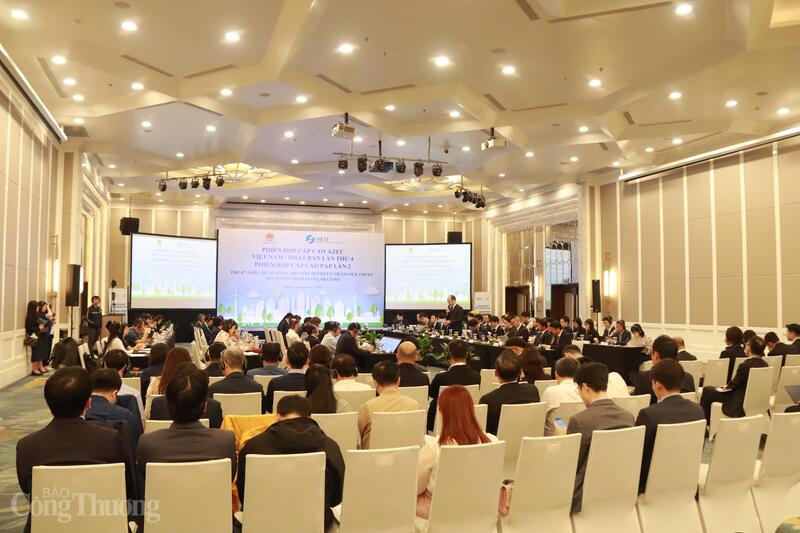
Event scene. Photo: Thanh Tuan
According to IEEJ representative, in Japan, there is a plan to put into use large-scale renewable energy sources towards 2040.
“ In Japan, the 7th strategic energy plan approved by the Cabinet in February 2025 targets a power mix of 40-50% renewable energy, 20% nuclear power and 30-40% thermal power by 2040. Low-efficiency coal-fired power plants are expected to gradually reduce their output. In addition, it is necessary to ensure the maintenance of LNG power plants as part of the power supply capacity to cope with fluctuations in output of renewable energy sources, ” the IEEJ representative informed.
The Japanese representative said that in Vietnam, it is necessary to invest in large-scale power generation to meet the increasing demand for electricity. Accordingly, in Vietnam, the adjusted Power Plan VIII was approved in April 2025. Compared to 2023, peak load demand is expected to increase 1.9-2.2 times in 2030, while total power capacity is expected to increase 2.3-3 times.
In particular, unlike renewable energy sources with fluctuating output, gas-fired power plants provide stable power and are considered highly reliable. Therefore, the stable operation of gas-fired power plants is essential to meet the increasing demand for electricity.
According to the IEEJ representative, the demand for electricity is increasing globally due to the expansion of data centers and electrification, and the expected large-scale use of renewable energy to achieve decarbonization goals. As a result, competition for investment in power generation is becoming increasingly fierce worldwide.
If renewable energy is used on a large scale, the profitability of thermal power plants will decrease, so the forecast of the ability to recover investment costs becomes important. Similarly, if a reasonable cost recovery mechanism cannot be ensured, investing in large-scale power plants such as nuclear power will become difficult in the context of electricity market liberalization.
Therefore, in Europe, the United States and Japan, various mechanisms are being implemented to create a business environment that allows power generation companies to recover both fixed and variable costs with certainty. By improving the predictability of investment cost recovery, it is possible to reduce capital costs, reduce generation costs and limit the increase in electricity prices, thereby contributing to improving consumer welfare.
To promote the energy transition towards Vietnam's goal of carbon neutrality by 2050, the “AZEC/GX Promotion Working Group” was established under the AZEC initiative to enhance cooperation in developing the investment environment and human resources. In addition, the PAP under the AZEC framework was also established to accelerate the implementation of specific projects. In March 2025, pilot projects were selected for inclusion in the PAP.
Source: https://congthuong.vn/azec-dong-luc-moi-cho-hop-tac-nang-luong-sach-viet-nam-nhat-ban-430832.html







![[Photo] General Secretary To Lam and National Assembly Chairman Tran Thanh Man attend the 80th Anniversary of the Traditional Day of the Vietnamese Inspection Sector](https://vphoto.vietnam.vn/thumb/1200x675/vietnam/resource/IMAGE/2025/11/17/1763356362984_a2-bnd-7940-3561-jpg.webp)
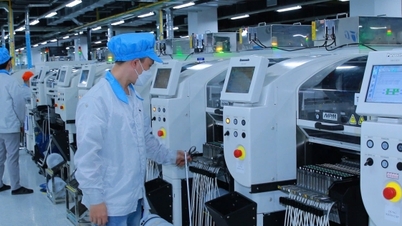
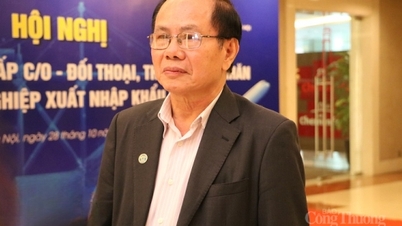
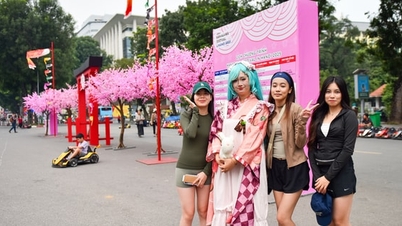

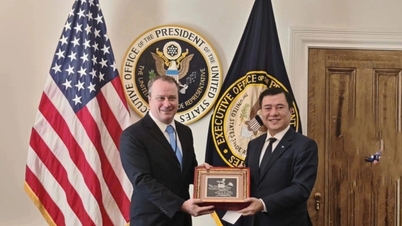

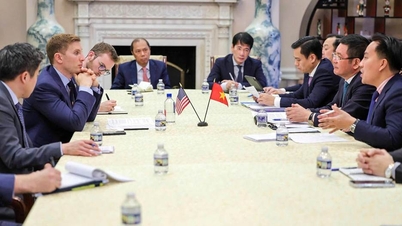

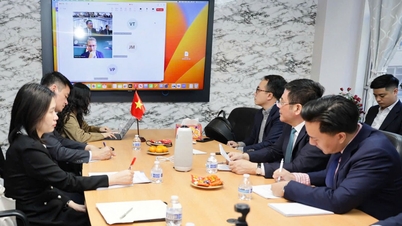
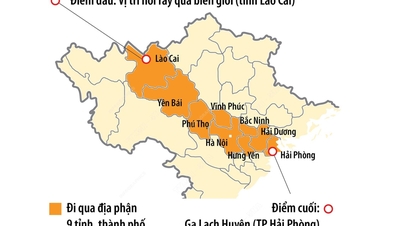
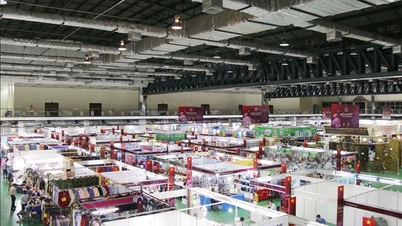
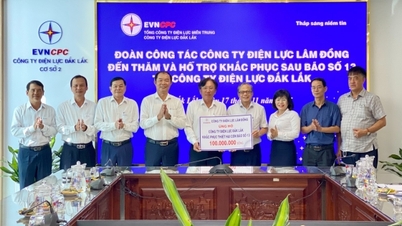











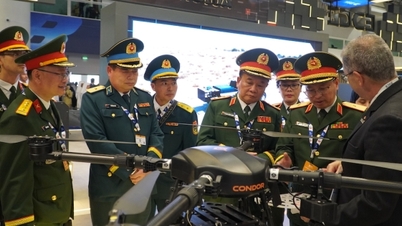
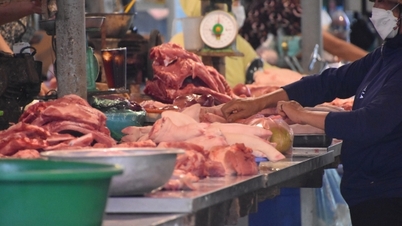
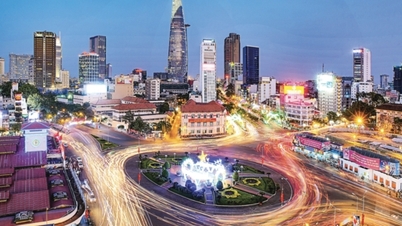





















































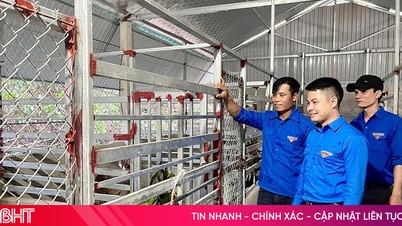

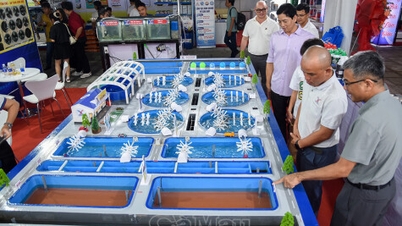

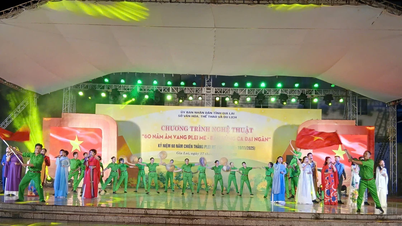

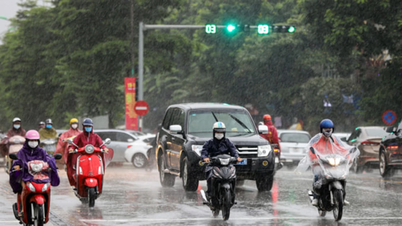
















Comment (0)